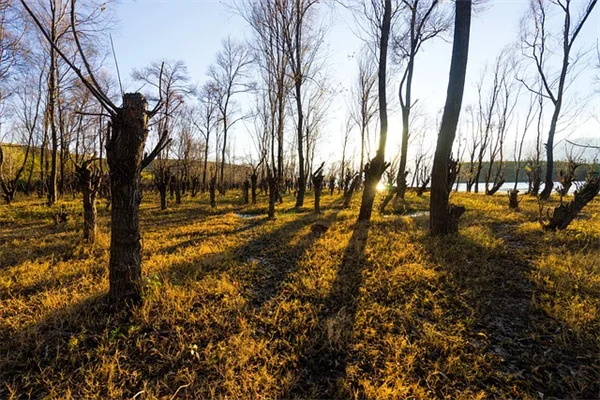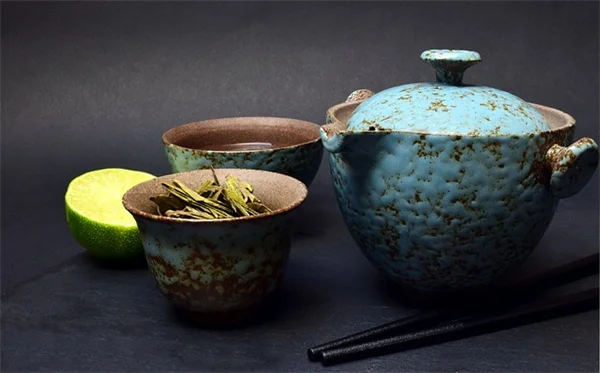What does the DOJ's marijuana reclassification mean for Americans? The answer is simple: this is the biggest shift in U.S. drug policy in decades. President Biden just endorsed moving cannabis from Schedule I to Schedule III - putting it in the same category as prescription drugs like Tylenol with codeine. While it won't legalize recreational use nationwide, this change will make life easier for medical patients, researchers, and businesses. I've been following cannabis policy for years, and let me tell you - this is huge news that'll affect everything from banking to taxes to scientific research. Stick with me as we break down exactly what this means for you and why it matters.
E.g. :Gut Bacteria and Obesity: How Your Microbiome Affects Weight Differently in Men vs Women
- 1、Big Changes Coming to U.S. Cannabis Laws
- 2、How This Affects You and Your Community
- 3、Common Questions People Are Asking
- 4、What Comes Next in This Process?
- 5、Your Part in This Changing Landscape
- 6、The Economic Ripple Effects of Cannabis Rescheduling
- 7、The Environmental Impact We Rarely Discuss
- 8、The Social Justice Implications
- 9、The Future of Cannabis Innovation
- 10、What This Means for International Relations
- 11、FAQs
Big Changes Coming to U.S. Cannabis Laws
What's Happening Right Now?
You've probably heard the buzz - the U.S. government is finally making moves to change how we treat marijuana. The Department of Justice just proposed reclassifying cannabis from a Schedule I to Schedule III drug. That's huge! President Biden himself called this decision "monumental" in a recent video.
Now here's the interesting part - while this change won't happen overnight (we're looking at probably a year or more), it represents the biggest shift in federal cannabis policy in over 50 years. Think about that! The last time the government seriously reconsidered marijuana laws, most of us were still listening to music on cassette tapes.
What Does Schedule III Actually Mean?
Let me break it down for you in simple terms. Right now, cannabis sits in Schedule I alongside heroin and LSD - drugs the government says have "no medical use" and high abuse potential. Doesn't that seem outdated when 38 states have legal medical marijuana?
Schedule III puts cannabis in the same category as:
| Drug | Common Use |
|---|---|
| Ketamine | Anesthesia and depression treatment |
| Testosterone | Hormone therapy |
| Tylenol with codeine | Pain relief |
See the difference? These are medications with accepted medical uses and lower abuse potential. Doesn't that make more sense for cannabis, which millions already use for pain, anxiety and other conditions?
How This Affects You and Your Community
 Photos provided by pixabay
Photos provided by pixabay
For Medical Patients and Businesses
If you've ever tried to pay for medical marijuana with a credit card, you know the struggle. Currently, most banks won't touch cannabis businesses because it's federally illegal. But guess what? Rescheduling could finally open up banking services, making transactions safer and easier for everyone.
Here's another win - cannabis businesses might finally get normal tax treatment. Right now, they can't deduct basic expenses like rent or payroll because of IRS rules about "illegal drug trafficking." That could change overnight with Schedule III status. More money staying in these businesses means better products and services for patients.
For Scientists and Researchers
Ever wonder why we don't have more solid research on cannabis benefits and risks? The Schedule I classification has been a nightmare for scientists. One researcher told me getting approval to study cannabis is like "trying to solve a Rubik's cube blindfolded."
With Schedule III status, researchers could:
- Access cannabis from local dispensaries instead of government-approved sources
- Conduct studies without jumping through endless bureaucratic hoops
- Finally answer important questions about medical uses and safety
This could lead to breakthroughs in treating conditions like chronic pain, epilepsy, and PTSD. Isn't that something we should all be excited about?
Common Questions People Are Asking
Will More Dispensaries Open Everywhere?
Here's where it gets tricky. The rescheduling doesn't automatically legalize cannabis nationwide. States still get to make their own rules. So while you might see more medical dispensaries over time, don't expect a cannabis shop on every corner in conservative states just yet.
But here's a funny thought - if cannabis becomes Schedule III, could you eventually pick it up at your local pharmacy like other prescription drugs? That would certainly make things convenient!
 Photos provided by pixabay
Photos provided by pixabay
For Medical Patients and Businesses
I know what some parents are thinking - "Won't this make it easier for kids to get marijuana?" Actually, recent studies in JAMA Pediatrics found little to no increase in teen use after legalization. The data shows that when cannabis is properly regulated, it doesn't automatically lead to more underage use.
Think about it this way - alcohol is legal for adults, but we have strict rules about ID checks and sales to minors. The same sensible approach can work for cannabis.
What Comes Next in This Process?
The Road Ahead
Now, don't go celebrating just yet. The government moves slower than a snail in molasses when it comes to these changes. Here's what needs to happen:
- The proposal goes to the White House Office of Management and Budget
- Public comment period (this could take months)
- Final regulations issued
Legal experts predict we might not see actual changes until after the 2024 election. But hey, after nearly a century of prohibition, what's another year or two?
Why This Matters More Than You Think
Beyond the practical benefits, this represents a major shift in how America views cannabis. For generations, we've been fed scary stories about marijuana with little scientific basis. Now we're finally acknowledging what millions of Americans already know - that cannabis can have legitimate medical uses and isn't the boogeyman it was made out to be.
As one industry expert told me, "This is like watching the Berlin Wall of drug policy finally start to crumble." Sure, we still have work to do, but this is progress worth celebrating.
Your Part in This Changing Landscape
 Photos provided by pixabay
Photos provided by pixabay
For Medical Patients and Businesses
With all these changes coming, it's more important than ever to get your information from reliable sources. Don't just trust what your cousin's friend posted on Facebook about cannabis. Look for facts from:
- Government health agencies
- Reputable medical organizations
- Peer-reviewed research studies
Making Your Voice Heard
Remember that public comment period I mentioned? That's your chance to weigh in! Whether you support the changes or have concerns, the government actually wants to hear from regular folks like you and me. How often does that happen?
You can find information about submitting comments on the DEA and DOJ websites. Just think - your email could help shape the future of cannabis policy in America. Pretty cool, right?
As we watch this historic change unfold, one thing's for sure - the days of treating cannabis like heroin are finally coming to an end. And that's something we can all appreciate, whether you use cannabis or not.
The Economic Ripple Effects of Cannabis Rescheduling
Job Creation Boom
You know what's really exciting? This policy shift could create hundreds of thousands of new jobs across America. We're not just talking about budtenders - think about all the supporting roles that will emerge!
From agricultural technicians to lab testers, marketing specialists to security personnel, the cannabis industry could become one of America's fastest-growing employment sectors. In states where cannabis is already legal, we've seen wages in the industry rise 10-15% faster than the national average. Now imagine that growth going nationwide!
Real Estate Revival
Ever driven through struggling downtown areas with empty storefronts? Cannabis businesses might be the unexpected heroes these communities need. In Denver, for example, dispensaries helped revitalize entire neighborhoods by:
- Paying premium rents for retail spaces
- Attracting foot traffic to surrounding businesses
- Generating tax revenue for local improvements
And here's a fun fact - many dispensaries actually prefer setting up in older buildings rather than new constructions. That means historic properties get preserved while putting money back into local economies.
The Environmental Impact We Rarely Discuss
Sustainable Farming Practices
Did you know cannabis could actually help fight climate change? When grown responsibly, this plant offers some surprising environmental benefits:
| Practice | Environmental Benefit |
|---|---|
| Regenerative agriculture | Rebuilds soil health and sequesters carbon |
| Water conservation | Uses less water than many traditional crops |
| Natural pest control | Reduces need for chemical pesticides |
With federal rescheduling, we could see more investment in these sustainable methods. Isn't that a win for both patients and the planet?
Reducing the Carbon Footprint of Medicine
Here's something most people don't consider - locally grown cannabis could replace medications that currently require:
- International shipping of raw materials
- Energy-intensive manufacturing processes
- Plastic packaging for pills
Imagine being able to walk down to your neighborhood dispensary for medicine grown just a few miles away. That's the kind of local, sustainable healthcare future we could be building!
The Social Justice Implications
Addressing Past Harms
We can't talk about cannabis reform without acknowledging the devastating impact of the War on Drugs. While rescheduling won't solve everything, it's a crucial step toward righting past wrongs.
In states that have legalized cannabis, we've seen innovative programs that:
- Expunge minor cannabis convictions
- Prioritize licenses for communities most harmed by prohibition
- Invest tax revenue into education and job training
With federal changes, these programs could expand nationwide. How powerful would it be to see communities rebuild with resources from this very industry that once tore them apart?
New Opportunities for Minority Entrepreneurs
The early days of legal cannabis were dominated by wealthy investors. But as the industry matures, we're seeing more programs to level the playing field:
- Low-interest loans for minority-owned businesses
- Incubator programs for first-time entrepreneurs
- Technical assistance with licensing and compliance
These initiatives prove that cannabis legalization can be about more than just profits - it can be a tool for economic justice too.
The Future of Cannabis Innovation
Beyond Smoking: New Consumption Methods
Gone are the days when your only option was rolling a joint. The cannabis industry has exploded with innovative products that would make your grandma's head spin!
Some of the most exciting developments include:
- Fast-acting nano-emulsified beverages
- Precision-dosed transdermal patches
- Temperature-controlled vaporizers
- Water-soluble powders for cooking
With federal rescheduling, we'll likely see even more investment in these technologies. Who knows - your next cannabis experience might come from something that looks more like a high-tech gadget than traditional "weed."
The Wellness Revolution
Cannabis is breaking out of the "stoner" stereotype and joining the mainstream wellness movement. High-end spas now offer CBD facials, yoga studios host cannabis-enhanced classes, and luxury resorts feature cannabis-infused dining experiences.
This shift represents a huge opportunity for:
- Fitness professionals incorporating cannabis into recovery
- Chefs exploring cannabis cuisine
- Wellness coaches integrating plant medicine
The future of cannabis isn't just about getting high - it's about enhancing quality of life in ways we're only beginning to imagine.
What This Means for International Relations
America's Global Leadership Opportunity
While the U.S. has lagged behind countries like Canada and Uruguay on cannabis reform, this policy shift could position America as a global leader in:
- Medical cannabis research
- Responsible regulation frameworks
- Industry best practices
Other nations look to American policy when shaping their own laws. By getting cannabis regulation right, we could influence positive change worldwide.
The Trade Implications
Here's something most people haven't considered - federal rescheduling could open up international cannabis trade opportunities. American farmers might one day export premium cannabis products just like we do with California wines or Pacific Northwest apples.
Imagine:
- "Made in USA" cannabis products in global markets
- International cannabis tourism to American growing regions
- Collaborative research with scientists worldwide
The economic potential is staggering when you think beyond our borders!
E.g. :U.S. health agency recommends easing federal marijuana restrictions
FAQs
Q: How will the DOJ's marijuana reclassification affect medical cannabis patients?
A: If you're one of the millions using medical marijuana, this change is about to make your life much easier. Right now, the Schedule I classification creates all sorts of headaches - like not being able to use credit cards at dispensaries or deduct medical expenses. With Schedule III status, we'll likely see better banking access, which means more payment options and safer transactions. Plus, researchers will finally be able to properly study cannabis, leading to better products and dosing guidelines. The best part? You won't have to feel like you're doing something "dangerous" when using doctor-recommended treatment. It's about time our laws caught up with science and common sense!
Q: Will rescheduling marijuana lead to more dispensaries opening?
A: Here's the interesting thing - we might actually see fewer traditional dispensaries over time. Why? Because Schedule III drugs are typically available at pharmacies. Imagine being able to pick up your medical cannabis at the same place you get other prescriptions! However, don't expect this to happen overnight. States will still control their own medical marijuana programs, and the transition will take time. What's clear is that the current system - where cannabis is legal in some states but banned federally - has been a confusing mess. This change brings us one step closer to sensible, uniform policies.
Q: How does marijuana compare to other Schedule III drugs?
A: Let me put this in perspective - the government currently considers marijuana more dangerous than fentanyl (a Schedule II drug responsible for thousands of overdose deaths). Doesn't that sound ridiculous? Under Schedule III, cannabis will join drugs like ketamine (used for depression and anesthesia) and testosterone (for hormone therapy). These are medications with accepted medical uses and lower abuse potential than Schedule I substances. The truth is, cannabis has always been out of place in Schedule I, and this correction is long overdue. It's not about making marijuana "safe" - it's about properly assessing its actual risks and benefits.
Q: What does this mean for cannabis research?
A: As someone who's worked with researchers, I can tell you this is the most exciting part. Currently, studying cannabis is like running an obstacle course blindfolded. Scientists need special licenses, can only use government-grown marijuana (which is notoriously weak), and face endless paperwork. With Schedule III status, researchers will finally be able to study the actual products patients are using from local dispensaries. This means we'll get real answers about medical benefits, proper dosing, and potential risks much faster. It's a game-changer for understanding how cannabis can help with conditions like chronic pain, PTSD, and epilepsy.
Q: When will these changes actually take effect?
A: Here's the reality check - don't hold your breath. The government moves slower than a stoned sloth when it comes to policy changes. First, the proposal needs White House approval, then there's a public comment period (which could last months), and finally the DEA has to issue new regulations. Experts predict we might not see actual changes until 2025, possibly after the presidential election. But here's the good news: once implemented, these changes will be permanent. After nearly a century of failed drug policies, we're finally seeing progress that will stand the test of time.



Discuss